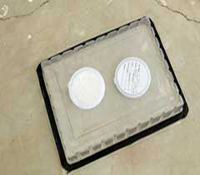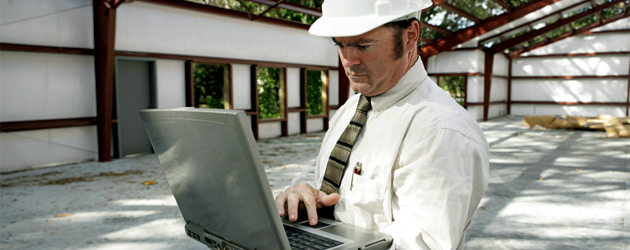Concrete moisture is a potential project-killer to installers who do not allow sufficient time for freshly-poured slabs to dry. Contractors have deployed various means of measuring concrete moisture content (MC) since the 1940s. However, relative humidity (RH) assessment has challenged the traditional anhydrous calcium chloride (CaCl) test in the 21st century.
The Wagner Meters Rapid RH® system allows users to assess concrete MC at 40 percent slab depth based on RH methodology. Contractors insert in situ probes into drilled concrete holes, and Smart sensors provide equilibrated MC data as quickly as one hour later. And because the Wagner sensor remains in the concrete slab, subsequent readings can be taken instantaneously from sensor to sensor for immediate and informed decisions.
The simple question is: Does your current RH assessment method make business sense?
For Certification
In the early 2000s, the American Society for Testing and Materials (ASTM) established standard F2170-09 protocol, which certified in situ RH concrete assessment. In fact, ASTM F2170 has become the standard for lightweight concrete slab installation.
 Even since being disallowed for lightweight concrete applications, ASTM F1869 is still in effect for other types of concrete slab moisture measurement according to the anhydrous CaCl test method. F1869 is based on the moisture vapor emissions rate (MVER) of concrete at the time of assessment.
Even since being disallowed for lightweight concrete applications, ASTM F1869 is still in effect for other types of concrete slab moisture measurement according to the anhydrous CaCl test method. F1869 is based on the moisture vapor emissions rate (MVER) of concrete at the time of assessment.
Two different standards, two different tests. Which one to choose?
For Success
The Rapid RH® from Wagner Meters contains several crucial features to assist concrete installers with MC management.
All concrete slabs hold a certain amount of MC at all times. The key is to assure that concrete has sufficient time to reach the RH level specified for the intended flooring application. Too high, and the risk of adhesive or flooring failure rises accordingly.
With accurate RH testing, contractors ensure the absence of excess MC in the slab. Installers can safely apply adhesives and floor coverings to appropriately dried slabs knowing they will last for the duration.
The Wagner Rapid RH® provides state-of-the-art concrete moisture measurement, so contractors can have the most accurate information to make well-informed decisions, therefore ensuring a completely successful flooring installation.
For Cost-Efficiency
 In times of intense productivity, the Wagner Meters Rapid RH® also provides crucial cost savings for builders. If time is money, the Rapid RH® is a recipe to meet budget targets on installation. Compared to the CaCl method, industry experts estimate that Wagner Meters in situ RH testing saves a total of over 150 hours of installation time (based on 13 slab tests). Conduct thorough slab testing, and multiply the cost savings of the Wagner Rapid RH®.
In times of intense productivity, the Wagner Meters Rapid RH® also provides crucial cost savings for builders. If time is money, the Rapid RH® is a recipe to meet budget targets on installation. Compared to the CaCl method, industry experts estimate that Wagner Meters in situ RH testing saves a total of over 150 hours of installation time (based on 13 slab tests). Conduct thorough slab testing, and multiply the cost savings of the Wagner Rapid RH®.
- Rapid RH® saves 130 minutes of test site preparation time.
- Rapid RH® saves 120 minutes of site protection costs.
- Rapid RH® saves over 125 minutes in test processing expense.
- Rapid RH® even saves 13 minutes on clean-up.
The Wagner Meters Rapid RH® relative humidity test will accurately identify how much excess MC remains inside the slab. Translated: Contractors can use results to allow sufficient drying time and make informed decisions; that eliminates the need to return for post-de-facto flooring remediation (at potentially-astronomical costs).
It’s a decision that makes business sense.





Leave a Reply